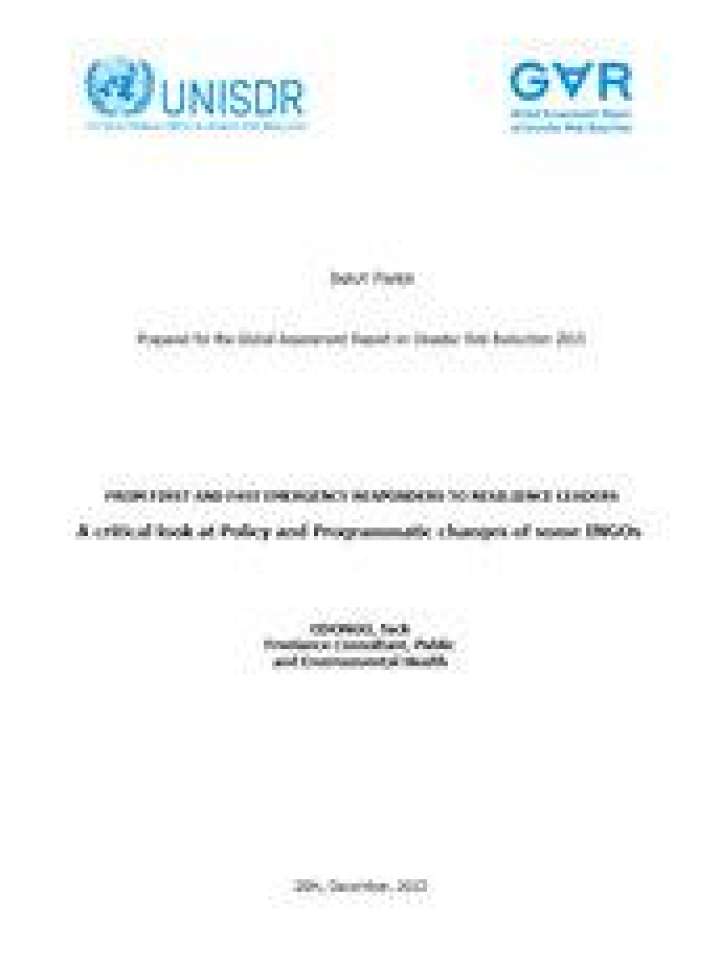From first and fast emergency responders to resilience leaders: A critical look at policy and programmatic changes of some International Non-Governmental Organizations
This document presents the work of various International Non-Governmental Organizations (INGOs) and lessons learnt deriving from their projects on the field. The paper discusses their policy and programmatic changes.
The author makes the following recommendations for the post-Hyogo Framework for Action 2015:
- child protection must be a priority before, during and after a disaster;
- disaster risk reduction (DRR)/resilience programmes should promote the rights and responsibilities of men, women and others in adaptation activities;
- there is need to work with Inter-Agency Standing Committee (IASC) Clusters;
- amongst poor and food insecure households, there is need for a strong shift has been seen from a previous mindset of subsistence, to a more business-oriented attitude;
- INGOs need to consider integrated cross-border programming;
- mechanisms for risk transfer/safety nets need to be explored to cushion households against disasters;
- the need for integration of climate change and DRR interventions is paramount to avoid interventions that result in mal-adaptation;
- monitoring and evaluation.
This document is an input paper of the 2015 Global Assessment Report on Disaster Risk Reduction.
Explore further
Themes
Civil Society/NGOs
